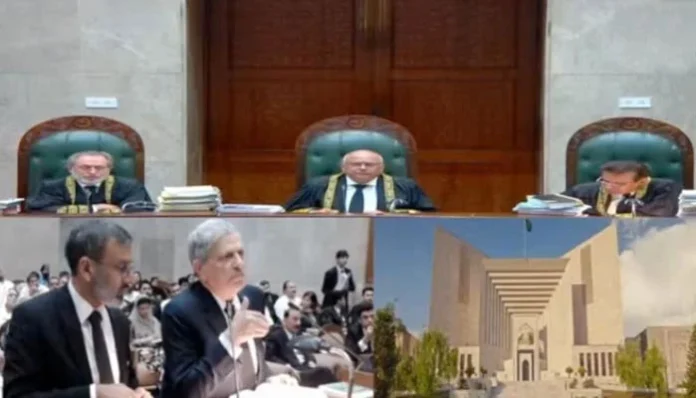In a major development on Pakistan’s political and legal landscape, the Supreme Court has ruled that the Pakistan Tehreek-e-Insaf (PTI) is not entitled to reserved seats for women and minorities in both the National Assembly and provincial legislatures.
The decision, announced on Friday by a 10-member larger bench headed by Justice Aminuddin Khan, overturns the July 12, 2024, majority ruling that had previously granted PTI access to these seats through its alignment with the Sunni Ittehad Council (SIC).
Justice Aminuddin declared that all review petitions submitted by the PML-N, PPP, and the Election Commission of Pakistan (ECP) were accepted. Consequently, the Supreme Court has reinstated the Peshawar High Court’s earlier judgment, which upheld the ECP’s stance denying reserved seats to SIC.
c.r.p._312_2024_27062025 by shahid farooq
The bench noted that since PTI-backed candidates contested elections as independents and later aligned with the SIC—a party that did not contest the general elections or submit a list of candidates for reserved seats—the legal prerequisites for allocation of those seats were not met.
Justices Mohammad Ali Mazhar and Syed Hasan Azhar Rizvi concurred, directing the ECP to re-evaluate the nomination papers and documents of the 80 PTI-backed candidates, emphasizing that unresolved factual disputes must be addressed through proper scrutiny.
This ruling marks a reversal of last year’s decision where eight Supreme Court judges had held that PTI, despite not having a unified election symbol, remained a legitimate political party entitled to proportional reserved seats.
The controversy arose after more than 80 PTI-backed independents won in the February 8 elections and later joined SIC, which then claimed the reserved seats. However, the ECP rejected the request, citing procedural lapses—particularly the failure to submit a mandatory priority list of candidates before the polls.
The reserved seats in question had already been distributed among coalition parties including the PML-N, PPP, and JUI-F, strengthening their numbers and giving them a two-thirds majority in parliament—a development now validated by the top court’s verdict.
This ruling significantly affects PTI’s parliamentary strength, as the loss of 77 potential reserved seats weakens its position as the largest opposition bloc.




